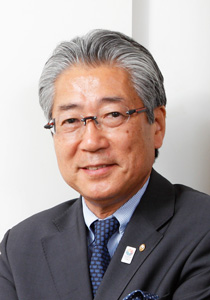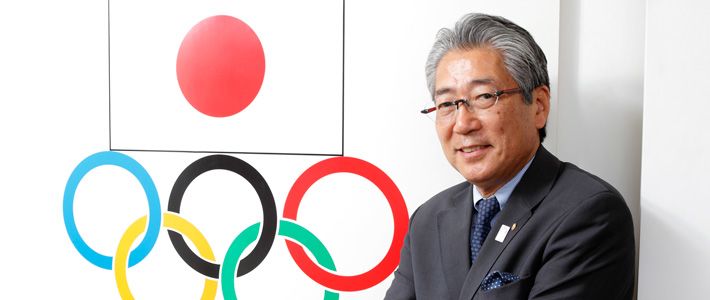
Bringing the Games Back to Japan
Society- English
- 日本語
- 简体字
- 繁體字
- Français
- Español
- العربية
- Русский
On Track to a Successful Bid
INTERVIEWER We’re now entering the final stages of the bidding process for the 2020 Olympic and Paralympic Games. How do you think things have gone so far for Tokyo?
TAKEDA TSUNEKAZU I think everything is going quite well compared to 2009, when Tokyo bid for the 2016 games. In a word, this is because we’ve made the necessary preparations for success this time around. But there’s always an element of the unknown involved, so we can’t let up in our efforts until the very end.
We’re seeing rising popular support in Japan for the bid, too. In May 2012 an International Olympic Committee poll found just 47 percent of residents in and around Tokyo to be in favor of the city hosting the Olympics. The IOC poll in March this year, though, saw that support rate climb to 70 percent. This was the target we had originally set for public support, so I’m relieved that we’ve reached this level. There are a number of reasons that this support rate has shot up, but I believe one of the biggest reasons was the strong performance of Japan’s Olympians at the London games last summer, where they brought home 38 medals—the most ever.
Another difference between our activities this time and the bid for the 2016 games is the presence of the Tokyo 2020 Council in addition to the bid committee. This council is an advisory board of sorts to the committee. Its members include figures from the political, business, and sports fields, and it’s played a big role in helping us to extend our efforts on a variety of fronts.
INTERVIEWER The lobbying for this Olympic bid looks like a huge amount of work. As someone on the front lines of these activities, what are your thoughts on Japan’s ability to reach out and deliver its messages to the global community?
TAKEDA I have to say that Japan lacks international competitiveness in a variety of fields—not just in athletic endeavor. This is partly due to linguistic and geographic factors, of course, but we’ve got to work on bringing a more international outlook to all of the country’s sporting representative bodies. Right now I sense tremendous power in the way that the Japanese government, industry, the sports world, and local governments have all come together to get the Olympics for Tokyo. We’ve got a much broader global network today than we did in the city’s previous bid. My hope is that it will lead to a positive outcome.
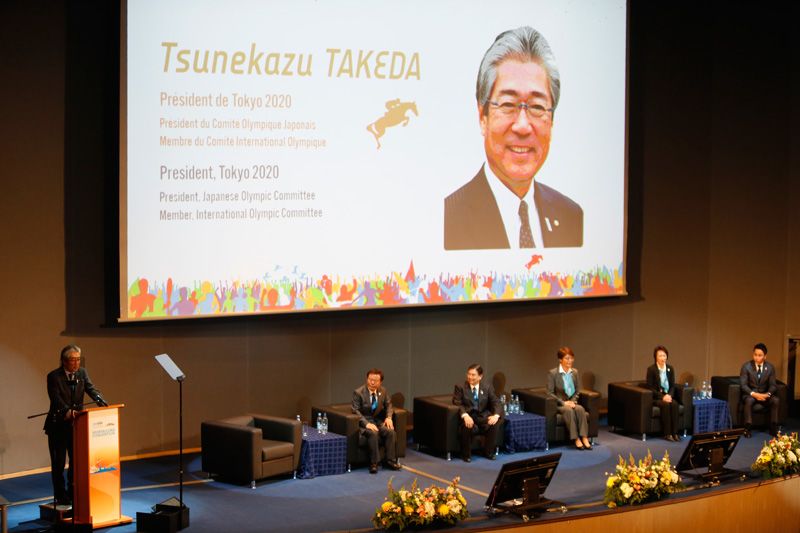 Takeda makes a presentation at the 2013 SportAccord Convention, held in Saint Petersburg, Russia, in May. (Courtesy Tokyo 2020 Bid Committee/Takemi Shūgo)
Takeda makes a presentation at the 2013 SportAccord Convention, held in Saint Petersburg, Russia, in May. (Courtesy Tokyo 2020 Bid Committee/Takemi Shūgo)
Bringing Hope to the Hopeless Through Sports
INTERVIEWER Holding the games in Japan would be meaningful from the perspective of helping to rebuild the disaster-stricken parts of Tōhoku as well. Is this something you’ve been stressing to the international community?
TAKEDA Ever since the earthquake and tsunami of March 11, 2011, the Japanese Olympic Committee and the country’s athletic bodies have been engaged in serious discussion on how sports can help. Traditionally, athletes taking part in events like the Olympics, Paralympics, and world championship meets have taken the cheering from supporters in their home countries and turned that into a source of power. But now is the time for the athletes themselves to become a source of strength for the people in the affected areas of Tōhoku. Numerous Olympians have headed north to the affected areas to do what they can to help.
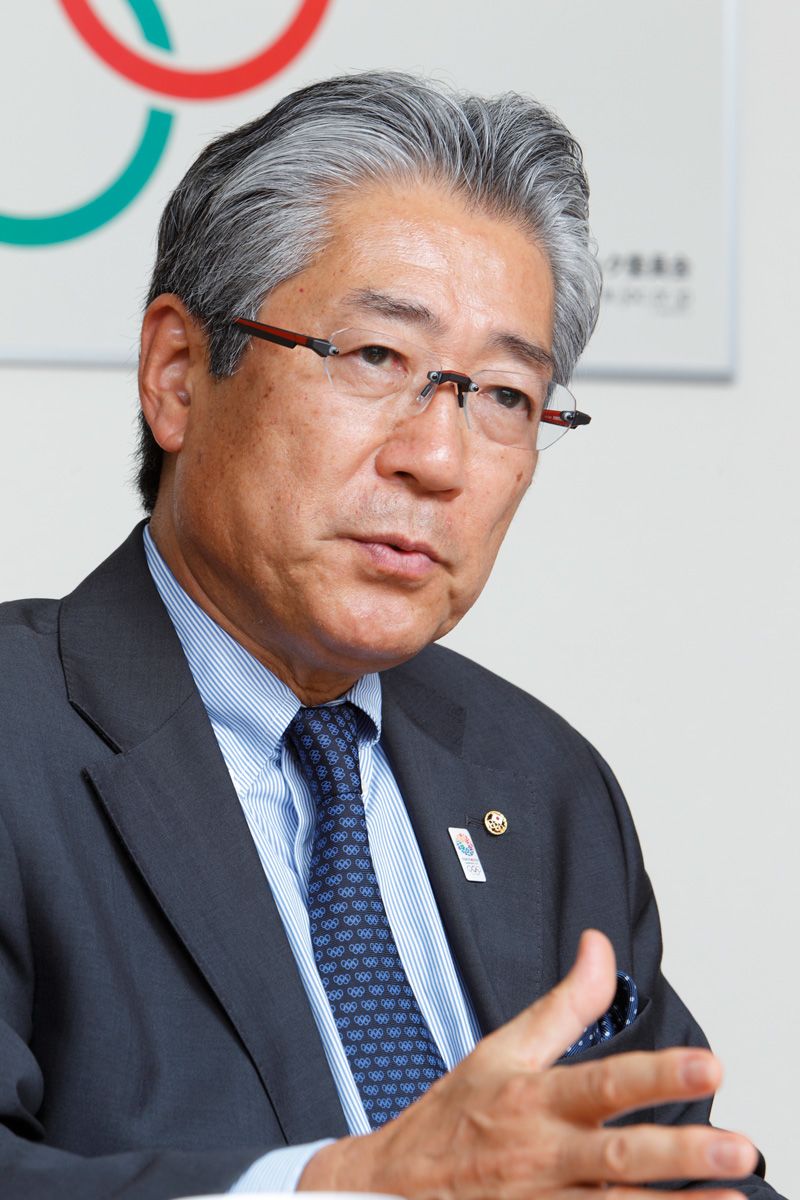 The JOC organized an event called the Olympic Day Festa to give children in the affected areas a chance to interact with Olympians through sports. It wasn’t just a domestic affair—we had athletes from other countries come to take part as well. Some of the children participating had lost parents on March 11, and we saw some troubled faces early on in the event, but as the day went on and the kids competed alongside the athletes, these expressions turned into wonderful smiles. I also took part that day and I really felt the power of sports.
The JOC organized an event called the Olympic Day Festa to give children in the affected areas a chance to interact with Olympians through sports. It wasn’t just a domestic affair—we had athletes from other countries come to take part as well. Some of the children participating had lost parents on March 11, and we saw some troubled faces early on in the event, but as the day went on and the kids competed alongside the athletes, these expressions turned into wonderful smiles. I also took part that day and I really felt the power of sports.
It should be noted that support for Tokyo’s Olympic bid is actually higher in the three Tōhoku prefectures most affected by the disaster—Iwate, Miyagi, and Fukushima—than it is in the capital. I feel this is because the people who experienced March 11 there have a much more real understanding of the way that sports can provide hope and dreams.
The Regional Significance of the Tokyo Games
INTERVIEWER We’re now in what has been called the “Pacific century.” If the 2020 games come to Tokyo, it should have a considerable impact on the entire region—East Asia as well as the Pacific. How are other Asian nations responding to the Japanese bid?
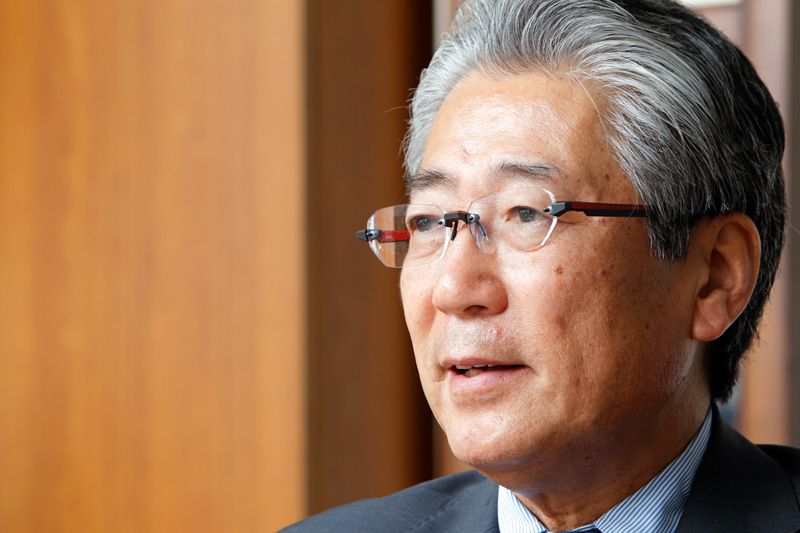 TAKEDA By hosting the Olympics in 2020, Tokyo would be the first Asian city to have the games a second time. Asia is a region with considerable promise for the future, given both its population and its economic clout. In particular, China, Korea, and Japan have been building up splendid records in the world of sports. So I think it would be very meaningful to bring the Olympics and Paralympics to Asia in 2020, and I do believe that the region’s people all hope to see this come about.
TAKEDA By hosting the Olympics in 2020, Tokyo would be the first Asian city to have the games a second time. Asia is a region with considerable promise for the future, given both its population and its economic clout. In particular, China, Korea, and Japan have been building up splendid records in the world of sports. So I think it would be very meaningful to bring the Olympics and Paralympics to Asia in 2020, and I do believe that the region’s people all hope to see this come about.
One thing we hope to stress to the world is that having already hosted the games once, in 1964, Tokyo is ready to put on the kind of event that can only be achieved by an experienced host city. All of the needed infrastructure, hotels, and event locations are already in place, so we aren’t looking at major expenditures to prepare. Our aim is to host games that are carried out safely, securely, and surely, getting back to the original Olympic spirit with games that aren’t too flashy while providing a model for future Olympic gatherings.
Today Japan is seeing its birthrate plummet and its society grow grayer at a very rapid clip. In a sense, Japan is a forerunner in grappling with the kind of challenging problems that all developed nations will one day face. In this connection, the Olympics and Paralympics take on an even greater significance for Japan. The 2020 games will take place alongside moves to boost universal access for people with physical disabilities and increased opportunities for these people to take part in sporting events.
Maintaining Focus on the Meaning of the Games
INTERVIEWER At the end of last year, the jūdō world was rocked by news that coaches had regularly abused top women athletes. This revelation came in the midst of your push to win the hosting rights to the Olympics—a festival built on the spirit of fair play. How do you respond to a thing like this?
TAKEDA It’s a terrible situation. The Olympic Charter itself states in no uncertain terms that violence must not be a part of sports. We’ve got to draw a clear line between efforts to make athletes stronger and actions of violence against them. We must eradicate violence from sports.
To make it to the Olympic stage, athletes go to the very limits of human potential. In this way sports have the power to change humans themselves. The development of sports is a wellspring bringing richness to human life and inspiring hope. For the athletes, their efforts have got to be a means of enriching themselves as human beings.
I took part in the 1972 Munich Games and the 1976 Montreal Games, representing Japan in the equestrian events. As an Olympian, as captain of Japan’s Olympic squad, and now as head of our 2020 bid efforts, I’ve deeply felt the pride and confidence that the Olympics and Paralympics can bring to us all. I have the utmost respect for the Olympic movement, which contributes to world peace through sports. My goal is to share the value and the appeal of sports with younger generations in particular. Hosting the games in Tokyo will be a wonderful way to accomplish this.
(Based on a June 4, 2013, interview in Japanese. Interviewer Harano Jōji is representative director of the Nippon Communications Foundation. Photographs by Ōkubo Keizō.)
Tokyo sports Paralympics Olympics 2020 JOC Takeda Tsunekazu Athletics IOC
